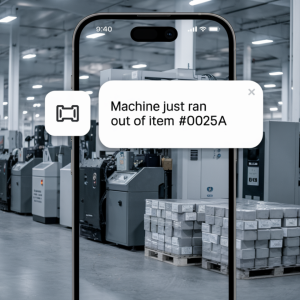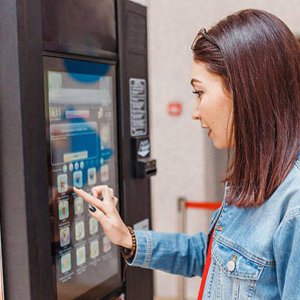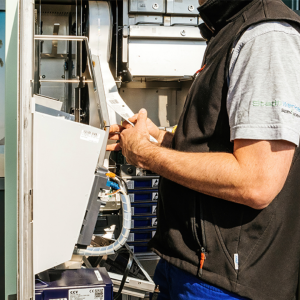What Licenses Or Permits Are Required To Sell Alcohol, Beer, Or Wine Through Vending Machines In Alabama

Introduction & Scope
The idea of selling alcoholic beverages through vending machines is gaining global attention. In some markets, alcohol vending machines are being tested as part of a growing interest in automation, contactless retail, and 24-hour access. These machines, whether designed as wine vending machines or beer vending machines, represent a niche but potentially profitable opportunity for vending operators and investors seeking to diversify their portfolios.
However, in the United States, and especially in states with strong alcohol regulation, this concept is far from straightforward. In Alabama, the sale and distribution of alcohol is tightly regulated by the Alabama Alcoholic Beverage Control Board (the “ABC Board”). The state’s regulatory framework governs every aspect of alcohol handling—from manufacturing to retail sales—and the use of a vending machine introduces additional layers of legal complexity.
This raises a key question for any vending business owner, venue operator, or investor exploring this emerging segment: are alcohol vending machines even legal in Alabama, and if so, what licences or permits would be required? Understanding the scope of regulation is the first step toward assessing whether automated alcohol sales can fit within Alabama’s existing legal framework.
This resource is written for vending machine operators, venue owners considering alcohol vending installations, and investors evaluating diversification into regulated product vending. It outlines how Alabama’s alcohol licensing system works, what the ABC Board requires, and the specific challenges related to automating alcohol sales within state law.
Alcohol Licensing Framework in Alabama
Overview of Alabama’s Alcohol Regulation
The Alabama Alcoholic Beverage Control Board (ABC Board) regulates every part of the state’s alcohol industry. It manages how alcohol is produced, distributed, and sold. For businesses exploring alcohol vending machines, this framework defines what is legally possible. Understanding these rules helps operators plan compliant and sustainable vending strategies.
Types of Alcohol Licences
The ABC Board issues different licences based on how alcohol is sold or served. Common categories include:
- On-premises licences for alcohol consumed on site, such as in bars and restaurants.
- Off-premises licences for packaged alcohol sold to take away.
- Manufacturer and distributor licences for businesses that make or supply alcohol.
Each licence has distinct conditions that affect how vending machines could operate in a regulated setting.
Control-State Model and Statutory Authority
Alabama is an “alcoholic beverage control state.” The ABC Board manages certain retail and wholesale alcohol sales to maintain oversight. Title 28, Chapter 11 of the Code of Alabama governs intoxicating liquor, malt beverages, and wine. These laws require each sale to occur on licensed premises. This raises the question of whether a beer vending machine or wine vending machine can meet that standard.
Implications for Vending Operators
State law does not mention vending automation for alcohol. Because of this gap, the legal status of alcohol vending machines remains unclear. Any operator considering this model should contact the ABC Board to confirm licensing options before investing in machines or installations.
Vending Machines & Alcohol: Legal Status and Key Restrictions
Current Legal Standing in Alabama
Alabama law does not directly allow alcohol vending machines. The Alabama Alcoholic Beverage Control Board (ABC Board) requires every alcohol sale to occur on a licensed premises and under a responsible licence holder’s supervision. A vending machine cannot provide that oversight. Because of this, a beer vending machine or wine vending machine in a public setting would fall outside the rules for standard retail licences.
Lessons from Tobacco Regulations
Alabama’s laws on other restricted products show how the state views automated sales. Under Alabama Code § 28-11-6.1, tobacco vending machines may only operate in adult-only or restricted-access areas. The same principle likely applies to alcohol. Any unsupervised system selling age-restricted goods raises serious compliance issues. Without on-site control, alcohol vending machines could violate multiple ABC rules on supervision and age verification.
Local Rules and Extra Limitations
Alabama’s local governments add further restrictions. Counties can be “wet” or “dry,” deciding whether alcohol sales are legal at all. Even in wet areas, cities often control sales hours, packaging, and container limits. Operators who want to install alcohol vending machines must confirm both state and local approval. Because these machines handle regulated products, businesses should always check with the ABC Board and local authorities before investing or installing equipment.
Licences and Permits You Must Consider
Retail Alcohol Licence
Any business selling alcohol in Alabama must hold a valid retail licence from the Alabama Alcoholic Beverage Control Board (ABC Board). The licence type depends on how and where sales occur. For alcohol vending machines, operators must confirm whether the machine’s location qualifies as licensed premises. The ABC Board’s “How to Apply” process outlines requirements for both on-premises and off-premises licences. Without an approved retail licence, alcohol sales through automation remain unlawful.
Vending Machine Privilege Licence
All vending operators in Alabama must hold a vending-machine privilege licence under Alabama Code § 40-12-176. This licence applies to machines selling general merchandise, including beverages. Even if alcohol sales were approved, the operator would still need this licence. Businesses using wine vending machines or beer vending machines must also ensure that each unit displays its licence tag and meets local inspection rules.
Local County and Municipal Licences
Each county or city may require its own business or occupational licence. Local authorities often issue additional permits for vending activities. Some, like Morgan County, require separate applications for each vending unit. Because Alabama includes both wet and dry counties, operators must verify local alcohol rules before installing alcohol vending machines. Compliance at both state and local levels is essential to avoid violations.
Age Verification and Access Compliance
Alabama law restricts alcohol sales to individuals aged 21 or older. A Alcohol vending machine dispensing alcohol would need secure age-verification technology. Machines in open areas pose high risk unless located within adult-only premises. Operators must ensure that sales data, transaction logs, and video monitoring align with ABC Board standards for supervision and enforcement.
Machine Location and Premises Approval
Location matters as much as licensing. The ABC Board must approve each alcohol-selling location. It is unclear whether a vending machine qualifies as a “premises” under current law. Operators should request written confirmation before placing any alcohol vending machines or related equipment. Meeting security, visibility, and supervision requirements is key to compliance.
Operational and Business-Risk Considerations
Age Verification and Machine Access
Age control is the biggest challenge for alcohol vending machines. Alabama law requires proof that every buyer is 21 or older. A age verification vending machines verify age using government-issued identification or facial-recognition technology. Machines placed in adult-only areas, such as licensed venues or private clubs, reduce risk. Public locations create high exposure to violations and enforcement penalties.
Location Constraints and Site Approval
Machine placement must meet both ABC Board and local rules. Locations already licensed for alcohol sales may be easier to approve. A wine vending machine or beer vending machine in a controlled area, such as a hotel bar or event hall, may comply more easily than one in a public space. Operators should seek written approval before installing equipment to avoid legal disputes.
Liability and Enforcement Risks
Non-compliance can lead to fines, licence suspension, or machine confiscation. Selling to minors or operating without the proper licence can also create criminal liability. Insurance companies may raise premiums for vending businesses that handle alcohol. Operators must budget for compliance audits, training, and legal reviews to protect their investment in alcohol vending machines.
Taxes, Reporting, and Record Keeping
Alcohol sales involve both excise and sales taxes. Automated transactions make reporting more complex, especially for remote machines. Businesses must track sales data, inventory, and tax payments accurately. Using cloud software for monitoring and compliance helps reduce errors and supports ABC Board audits.
Business Model Viability
Given strict laws and high oversight costs, automated alcohol sales may not suit every operator. Partnering with existing licence holders can lower risk. Many investors choose to focus on other products instead, such as snacks or non-alcoholic beverages. Those who pursue alcohol vending machines should treat the concept as experimental and prepare for additional legal and financial review.
Summary and Next Steps
Key Takeaways
Alabama law does not clearly authorise alcohol vending machines. The ABC Board requires every alcohol sale to occur on licensed premises under a responsible licence holder’s supervision. Because vending machines operate without on-site staff, they do not meet this condition. Operators should view wine vending machine and beer vending machines as high-risk concepts that need specific regulatory approval before launch.
Practical Next Steps for Operators
- Contact the ABC Board to confirm if a vending location can qualify as a licensed premises.
- Check local rules to verify whether the county or municipality is wet or dry and what vending restrictions apply.
- Secure the right licences, including retail alcohol and vending privilege licences, before installing any machine.
- Use strong age-verification tools and maintain clear audit trails for all automated transactions.
- Consult legal and compliance experts to ensure full understanding of Alabama’s alcohol regulations.
Risk Management and Long-Term Outlook
Automated alcohol sales remain an emerging idea with limited precedent in Alabama. Compliance costs, liability risks, and regulatory uncertainty make this a challenging venture. Operators and investors should budget for legal guidance, licensing fees, and ongoing monitoring. Treat alcohol vending machines as a test market opportunity rather than a primary business model until state guidance evolves.
Final Note
Success in this area depends on responsible planning, clear communication with regulators, and investment in secure technology. Whether pursuing age verification vending machines for alcohol or diversifying into other automated retail options, compliance should always come first. Careful preparation helps protect both the business and the wider vending industry’s reputation in Alabama.














